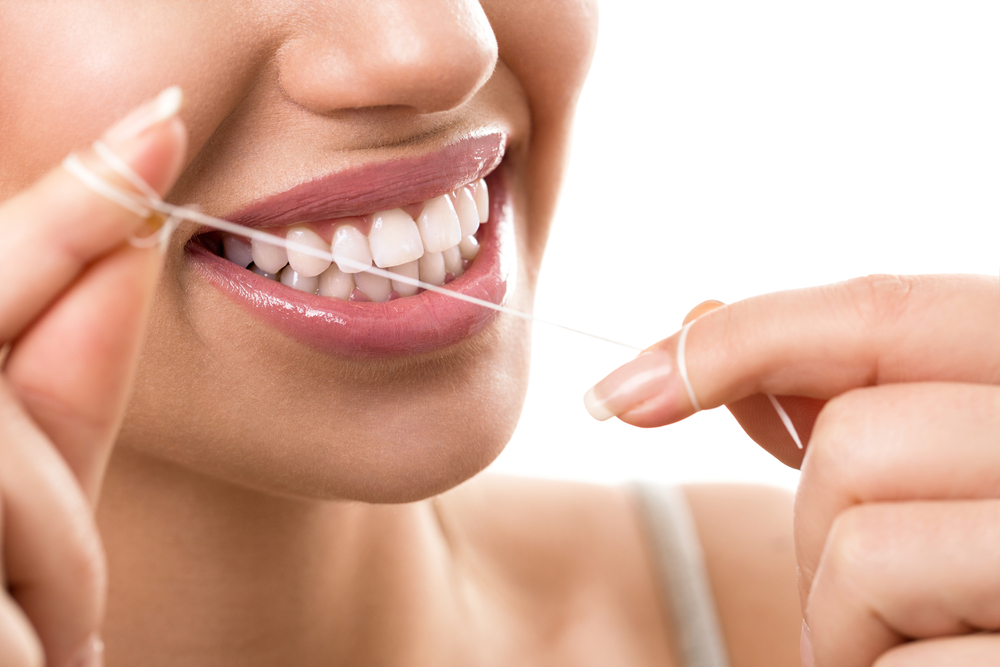Regular brushing is enough to keep your smile healthy, right?
While proper brushing is crucial in maintaining the health of your teeth and gums, what about the food particles that lodge themselves between your teeth?
Unfortunately, even the best toothbrushes cannot adequately reach these crevices. Flossing is your best defense for dealing with the bacteria that form between your teeth.
Keep reading to learn more about the importance of flossing as well as how you can properly add this crucial step into your oral health routine.
Why is Flossing Important?
Regular flossing helps to remove bacteria and plaque from the hard-to-see places inside your mouth so that you can enjoy the following benefits:
Flossing Prevents Gum Disease
Gum disease is an inflammatory issue that is caused by the build-up of plaque, a film-like substance full of bacteria that can cause infections and lead to gingivitis and periodontitis.
Symptoms of gum disease include bleeding gums, receding gums, and tooth and bone loss.
Regular flossing will help keep your gums healthy and avoid these problems.
Flossing Prevents Cavities
By flossing your teeth, you can avoid tooth decay and cavities since doing so will clear away cavity-causing plaque from between your teeth.
So if you shiver at the thought of facing your dentist’s drill, make flossing your teeth a part of your daily routine.
Flossing Can Prevent Tooth Loss
Brushing alone leaves at least 35% of your teeth surfaces unclean, creating a breeding ground for plaque and bacteria which can negatively impact the health of your gums and lead to oral diseases and tooth loss.
Flossing Can Prevent Heart Disease
How do your teeth and gums relate to your cardiovascular system?
Gingivitis, an easily-treatable form of gum disease, causes bleeding and allows plaque and bacteria to enter your bloodstream. This can eventually build up in your blood vessels and lead to heart disease.
Gum disease increases your chances of developing heart disease by 20%! Flossing can greatly reduce this risk.
Flossing Can Improve Your Smile and Your Breath
Regular flossing can help improve the brightness of your teeth and the appearance of healthy gums.
It will also help you keep your breath smelling fresh by clearing away trapped bits of food that can contribute to a foul smell.
Flossing Is a Proactive Way to Approach Your Oral Health
Flossing requires a certain degree of attention when it comes to the inside of your mouth. By flossing regularly, you can examine your teeth, gums, and tongue for any changes such as soreness, redness, or swelling.
Many health conditions other than oral diseases can negatively affect the inside of your mouth and, the quicker you can detect the issue, the more easily it can be treated.
How to Floss Properly

Now that you understand why it is important to floss your teeth regularly, let’s look at how you can do it properly!
When you floss, it’s important to make sure you are flossing between each pair of teeth and below your gumline, switching to a new section of floss after each tooth.
To begin, grab a piece of floss as long as your arm. Wind one end of the floss around your middle finger and secure the loose end around your other middle finger. You want to make sure you can maintain a secure grip on the floss.
Leave a gap around two inches between your middle fingers and adjust your index fingers so there is a one-inch section – be careful not to wind the floss around your index fingers.
Once your floss is positioned with your fingers, follow these steps:
- Gently slide the length of the floss between two teeth and wrap it around the base of the tooth in a “C” shape, guiding it under your gum line.
- Slide the floss along your tooth from the base to the tip 2-3 times. Your tooth should feel smooth.
- Repeat these steps for both sides of each tooth, remembering to floss between your back molars and wipe the backside of your molars.
- After each tooth, shift to a new section of floss to prevent cleared-out plaque from re-entering your mouth.
After you are finished flossing, brush your teeth.
If you are new to flossing, your gums may bleed a little. This is normal and will stop after a few days of regular flossing.
However, do not hesitate to contact your dentist if the bleeding does not stop or you are bleeding excessively.
How Often Should I Floss?
According to the American Dental Association, you should floss your teeth at least once a day and, as long as you do a thorough job, it doesn’t matter when.
To ensure that flossing becomes a part of your regular oral care routine, choose a time of day that works for you.
For instance, you may be too tired before bed to floss your teeth or perhaps you prefer going to bed with a clean mouth!
As long as it gets done properly once a day, and before brushing your teeth, you are taking the right steps to maintain optimal dental health!
Here are some helpful tips to make flossing a part of your daily routine:
- Start small by making your goal to floss 2-3 times per week. This will help you better form a daily habit.
- Keep your floss where you can see it, preferably beside your toothbrush. This is a great visual reminder!
- Set an alarm on your phone to remind you to floss.
Remember that it can take around three weeks to form a new habit, so don’t give up!
Flossing For a Healthier Smile
Here at Oxford Dental, we understand that new routines can be hard to establish but we encourage you to stay positive and continue to floss even if you miss a day or two.
One missed day here and there is better than not flossing at all!
If you are looking for more tips on including flossing into your daily routine or have questions about proper flossing techniques, please don’t hesitate to contact our team at Oxford Dental.

